Keeping safe from Covid-19
The health and safety of our employees and guests have always been our top priority.
NagaWorld established a Response Team to put in place preventive measures across the property, as well as helping to inform guests and our workforce about them. The following are some essential information, policies and guidelines for everyone’s knowledge and actions in keeping our property a safe environment to work in.
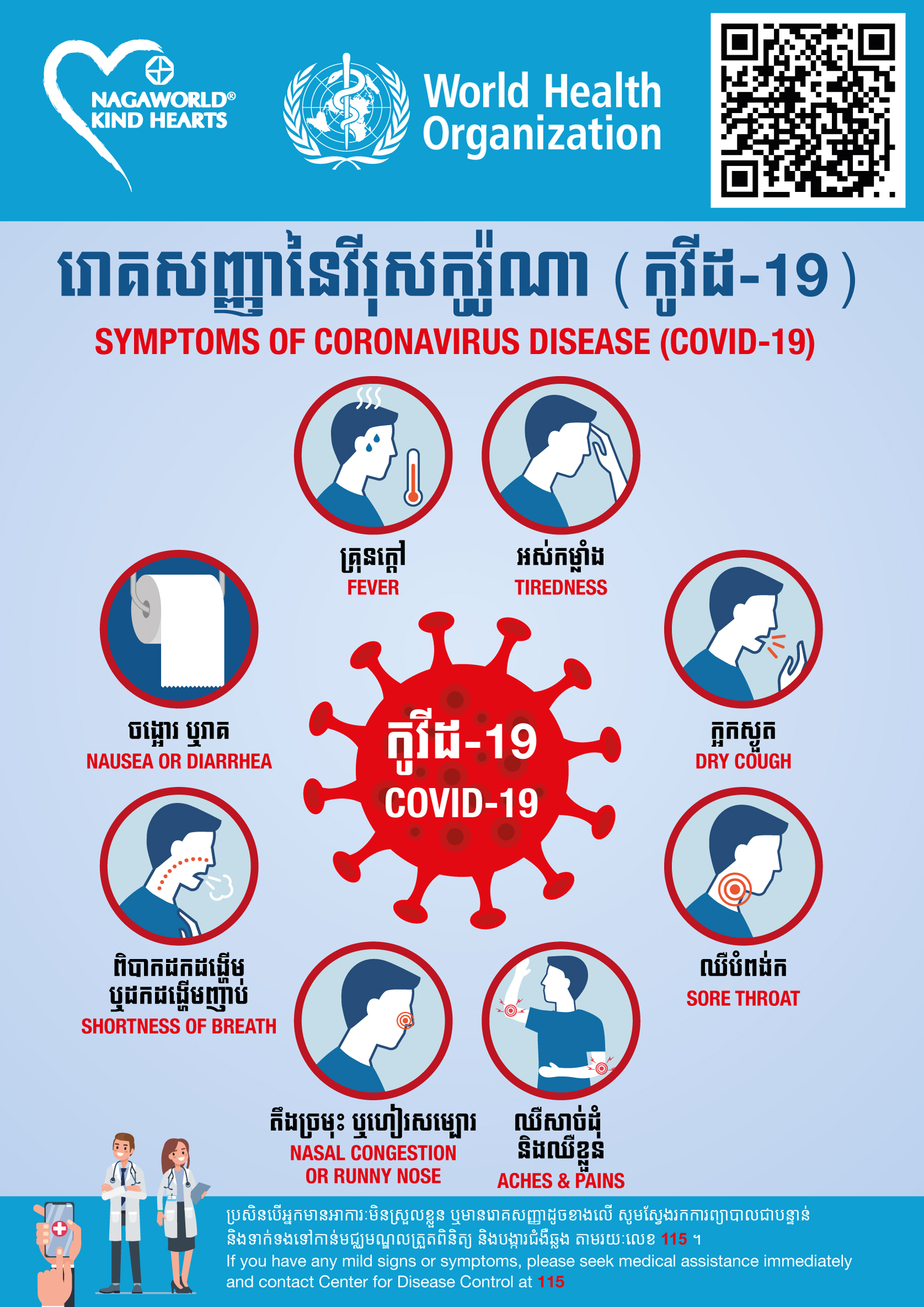
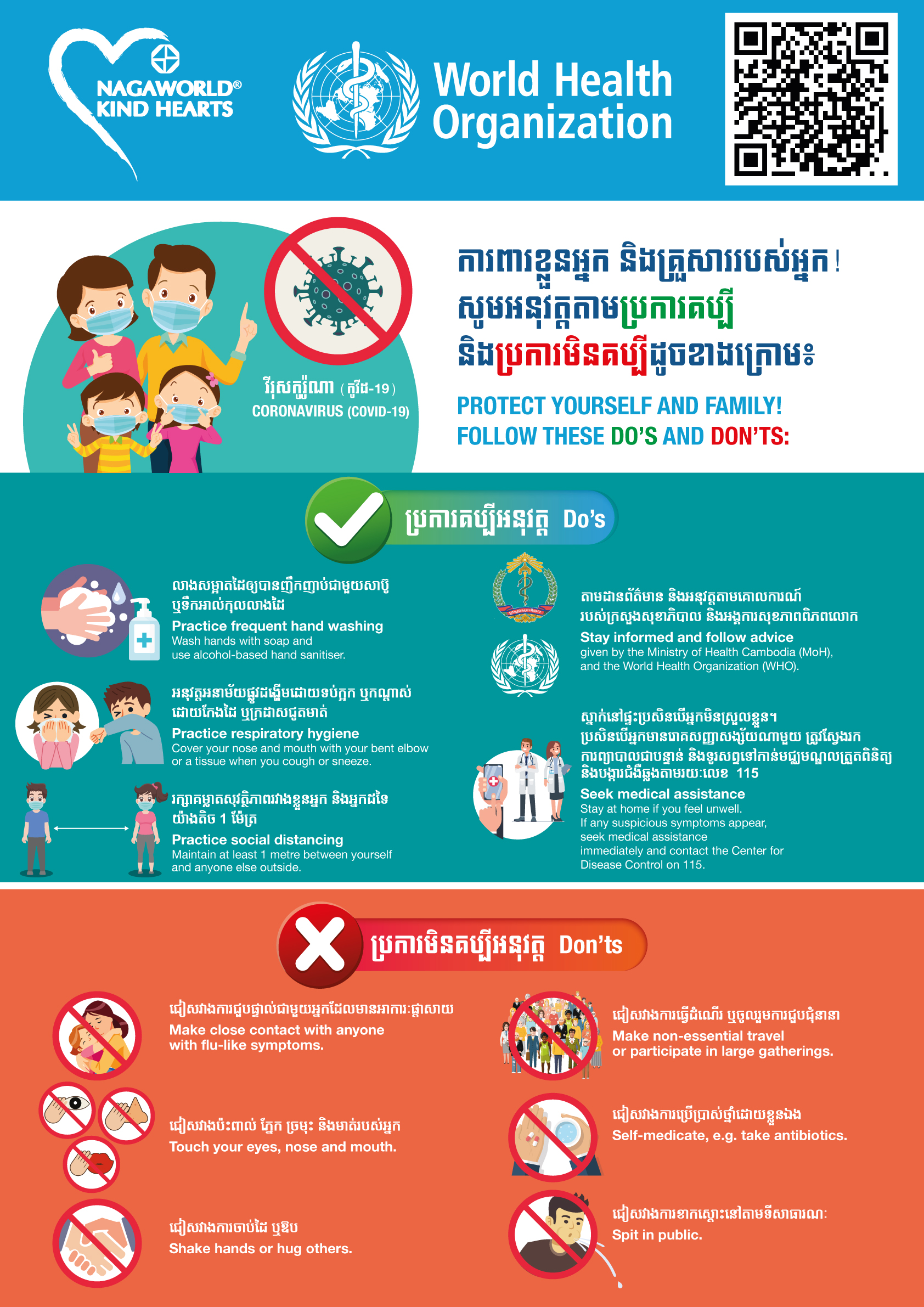

What is self-isolation?
Self-isolation means you must stay at home. Even though the symptoms are mild, you can still spread the virus to others. Self-isolation will help to protect your friends, colleagues and the wider community and will help control the outbreak. The instructions below are to help you try and limit the spread of infection to others within your household as much as possible.
When can I stop self-isolating at home?
You can stop when you have had no high temperature for five consecutive days AND it has been 14 days since you first developed any symptoms.
Keeping yourself safe and well
- It is easy to become anxious and lonely when you have to spend time on your own but remember, you can always pick up the phone and call or video chat with a friend.
- Although you have been asked to stay at home, it is important you keep yourself active by getting up and moving around as much as possib If you have a garden or backyard go out and get some fresh air but make sure to keep at least 1 metre away from other people including neighbours.
- Eat well and drink plenty of fluids to keep yourself hydrated.
- Try and avoid alcohol if you are feeling unwe
- Do not smoke or vape – if you do have a virus infection it is best not to do anything that might harm your lung
- If you start to feel unwell but it is not an emergency, you should call your regular docto
- If it is an emergency and you need to call an ambulance, call 115 or 119 and remember to inform them that you are suspected to have COVID-1
- If you have questions regarding the instructions below, please call GHR on 016 665 509 (EN) or 015 881 194 (KH).
Keeping everyone else safe
1. Stay at home
- Do not go to work, school, religious services or public areas, and do not use public transport or taxis unless you have been told that is safe to do so.
- You may need to ask family or neighbours for help if you need groceries, medication or other essential shopping items.
2. Keep away from others in your home
- If possible, stay in a separate, well-ventilated room (open window).
- If you have to go into the same room as other people, try to keep at least one metre away from everyone, clean your hands regularly and practice good respiratory etiquette (don’t cough or sneeze at others).
- If possible, use a separate toilet/washroo If you have to share this room with others, it must be kept well sanitised – remember to wash your hands before and after using the toilet, clean any surfaces you have touched and do not share towels.
3. Clean your hands regularly
- Wash thoroughly with soap – this is one of the most important things you can do to protect others.
- Use alcohol-based hand sanitiser after washing
- Do not touch anyone else’s fac
4. Cover your coughs and sneezes
- When you cough or sneeze, cover your mouth and nose with a tissue or your elbow
- Place used tissues into a plastic waste bag (see section 9 about managing rubbish), and immediately wash your hands with soap for at least 20 seconds and/or use alcohol-based hand sanistiser.
5. Avoid sharing your things
- Do not share food utensils and dishes, drinking cups and glasses, clothing, towels, bedding or other personal items with other people in your home after use, unless they have been washed thoroughly with hot water and detergent/disinfectant.
- If you are infected, someone else in the house should do the washing and use household/rubber gloves if available These gloves must be washed and dried after use, and hands washed thoroughly with soap.
- If you use electronics such as a smartphone, remote control or games controller, clean them with disinfectant before someone else in the house uses them.
- If you cough or sneeze on an item, clean it immediately with disinfectant.
6. Avoid visitors in your home
- Do not invite or allow unnecessary visitors to come into the hous
- If someone urgently needs to come to the house, keep at least one metre away from them and advise them that you are in self-isolation due to health concerns.
7. Household cleaning
- Clean all surfaces such as counters, table-tops, doorknobs or handles, bathroom fixtures, toilets, phones, tablets, and keyboards every day with cleaning products.
- Usual household cleaning products like detergents and bleach are very effective at getting rid of the viru Follow the instructions on the manufacturers label and check they can be used on the surface you are cleaning.
- If available, wear household/rubber gloves when cleaning surfaces or handling dirty laundry. Wash and dry gloves after use, and always wash your hands thoroughly afterwards.
- If you are using re-useable cleaning cloths, wash in hot water and detergent after us
- If the gloves and cleaning cloths are disposable, place them in a plastic waste bag after use (see section 9 about managing rubbish).
8. Laundry
- Wash laundry at the highest temperature that the material can withs
- You can tumble dry items and iron using a hot setting or steam iron if required.
- If available, wear household/rubber gloves when handling your dirty laundry and keep these items separate from other people’s laundry.
- If you don’t have gloves, wash your hands thoroughly after handling dirty lin
- Do not send laundry to a launderette.
9. Managing rubbish
- Put all your personal waste including used tissues and cleaning waste in a plastic rubbish bag.
- Tie the bag when it is almost full and then place it inside a second bin bag and tie again.
- Once the bag has been tied securely, leave it somewhere The bags should be left for three days before collection by your waste company.
- Other household waste can be disposed of as normal without any time delay.
What happens if there are children in the house?
- Children can get infected with COVID-19, so do your best to follow this adv However, we understand this may not always be possible.
- If your child does develop symptoms, they need to stay in self-isolation for 14 days AND until they have had no high temperature for five day
Living with someone in self-isolation
- If possible, only one person should look after the patient.Ideally, this would be someone who is not in a risk group for complications of infection.
- If you are caring for someone who is sick with COVID-19, try and keep your distance if possible (at least one metre) and avoid touching them.
- If this not possible, remember to wash your hands thoroughly afterwards with soap and use hand sanitiser.
- If necessary, help the person you are caring for to clean their hands as well.
- Avoid touching your face while caring for someone el
- If you have to clean phlegm or saliva from their face, use a clean tissue and put it into a waste bag – wash your hands afterwards.
- Encourage and support the patient to follow above advice.
- If the patient becomes very unwell but it is not an emergency, call your regular doctor to ask for advice.
- If it is an emergency, call the emergency services on 112 or 999 and remember to tell them that the patient has been suspected of having or been diagnosed with COVID-19.
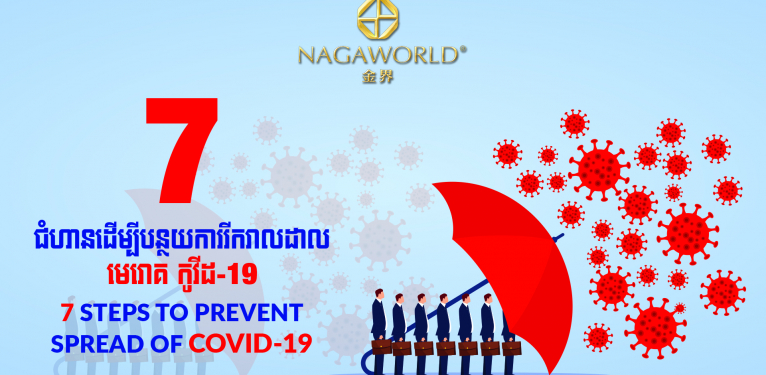
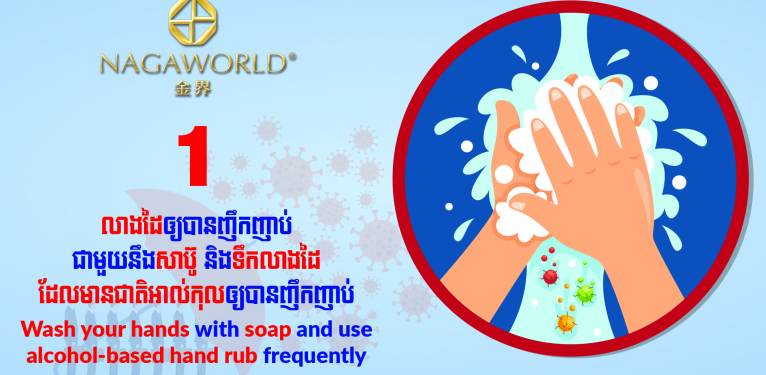
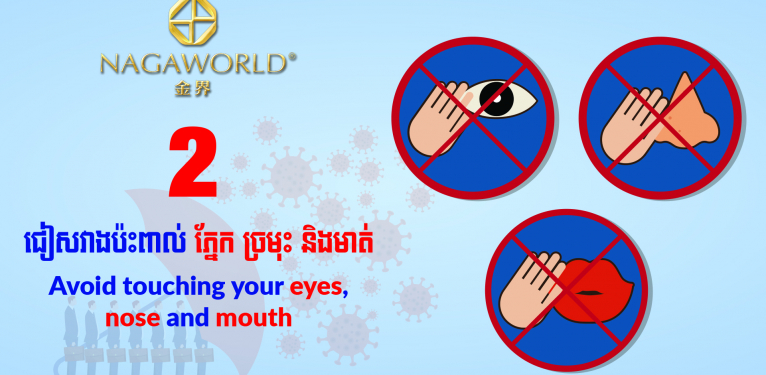
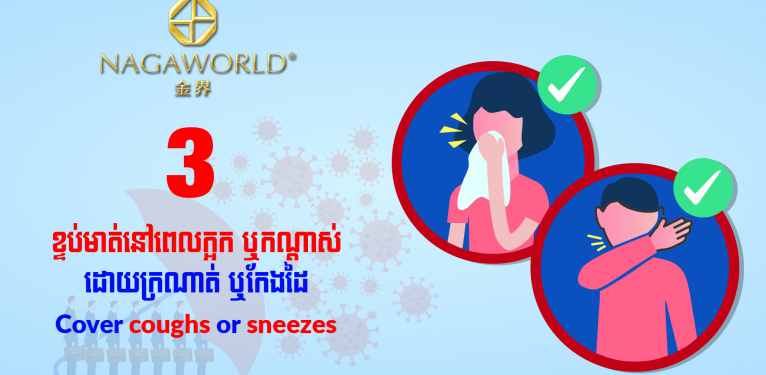
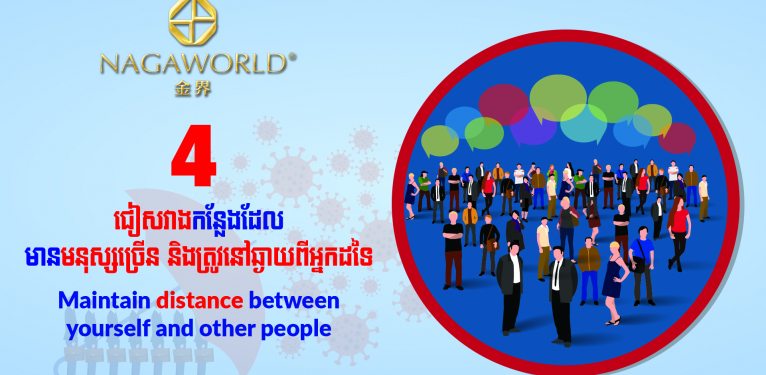
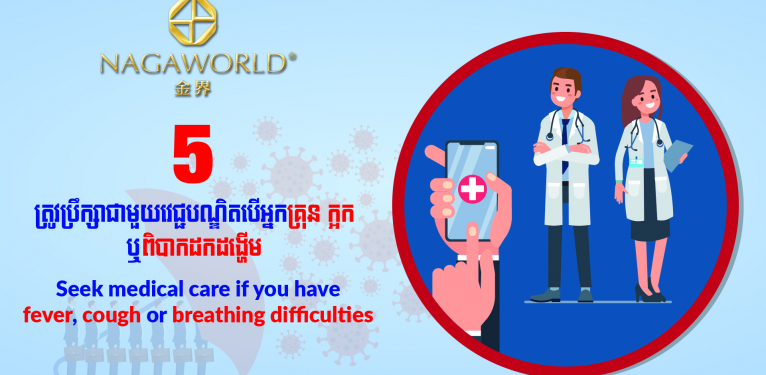
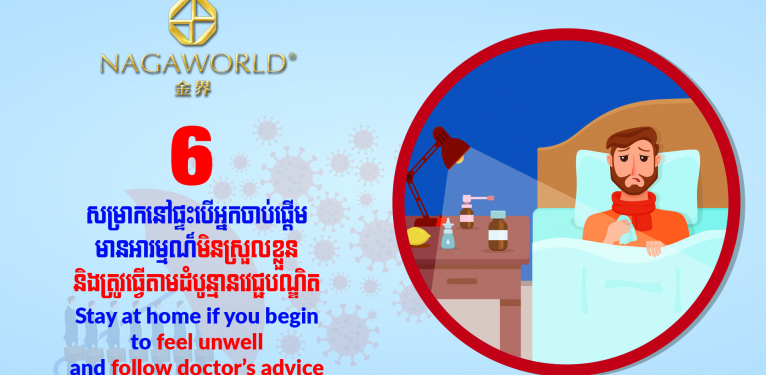
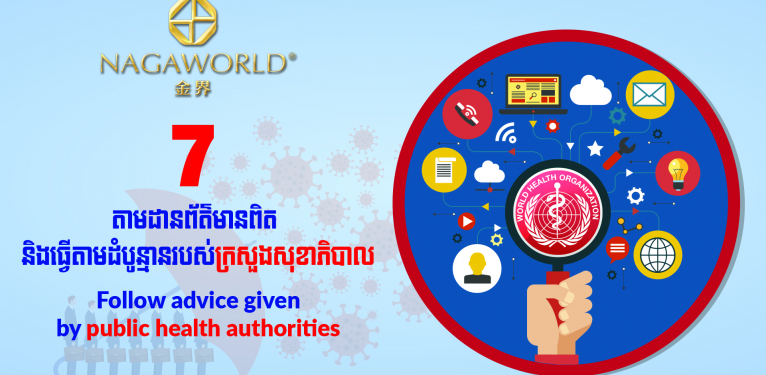
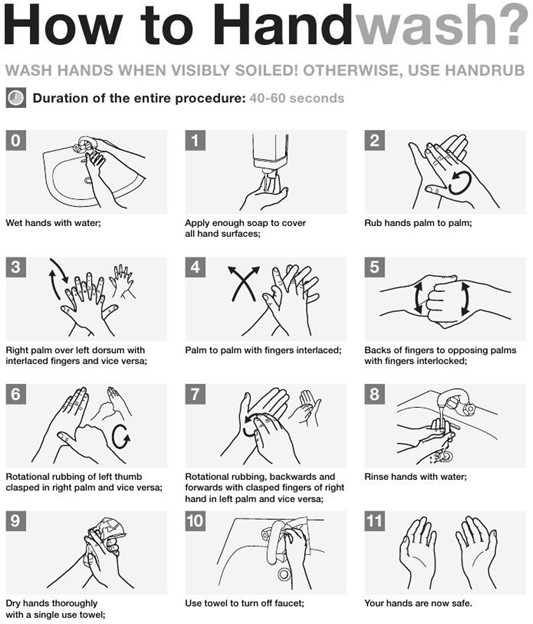
Figure 1 : Hand washing
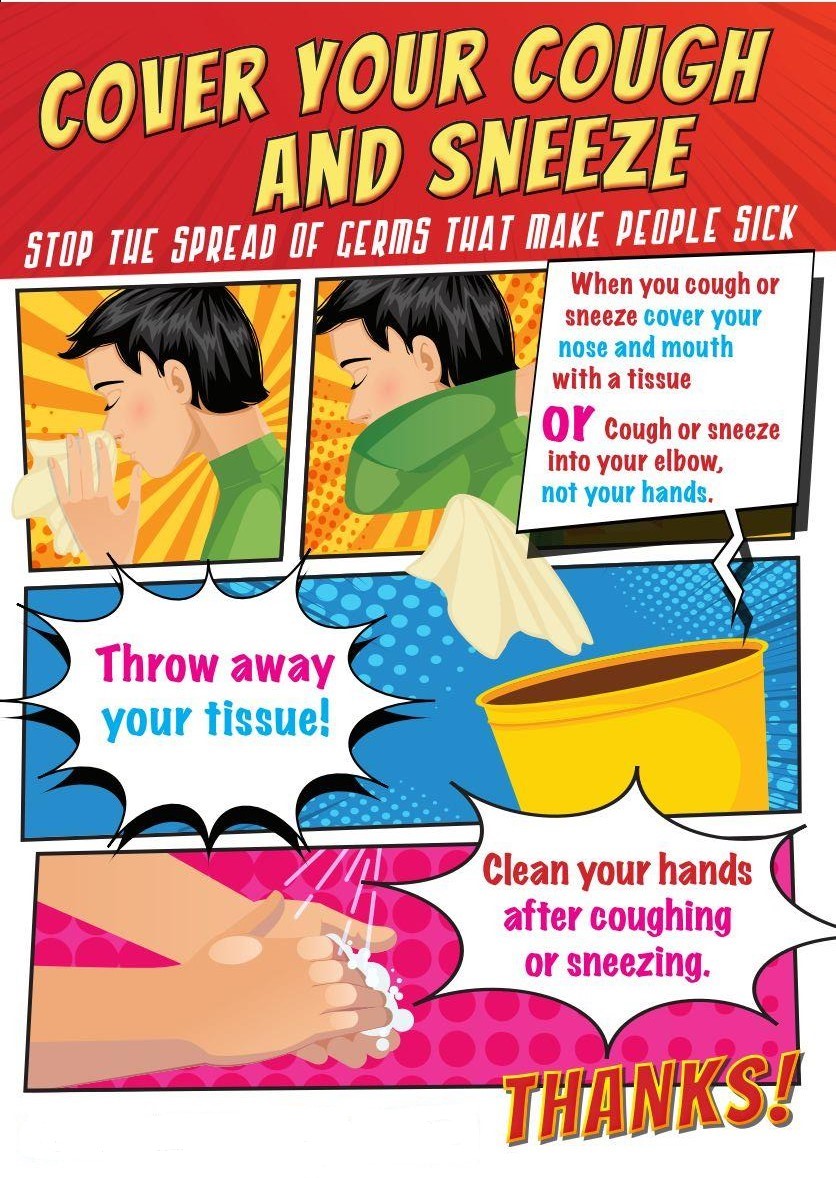
Figure 2. Respiratory etiquette

